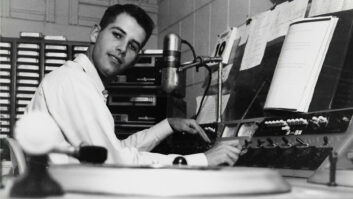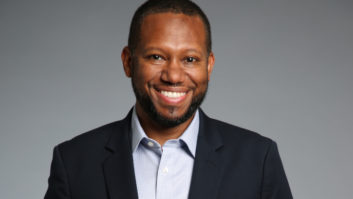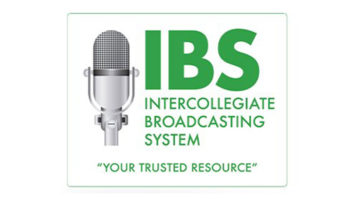
Career Day at the 2012 NAB Show. Nicholas Sbordone speaks to a representative of Turner Broadcasting as people wait patiently in line behind him.
Credit: Photo by Kovacs/Dawley
Regardless of which side of the desk you’re on, job interviews are exhausting. Because hiring well is essential for every department at a radio station, I’d like to present you with tactics that have worked — not just for me, but for others — over many decades of sifting through mounds of résumés and asking tons of questions.
While this is written primarily for those doing the hiring, potential job seekers will glean helpful tips as well.
More than ever, we employers are looking for the perfect fit. Looking for essential criteria on a résumé will get you halfway there, but it’s the interview process that truly tells the tale. You should be able to select about 10 candidates to speak with on the phone. Sure, you can pick more than that, but at some point you’ll cut into the amount of time you can spend focusing on each interview, and that can be risky.
During the 15-minute phone conversation, you need to be an excellent listener to be able to determine whether the candidate deserves more attention. Set him or her at ease by speaking first about the organization and your structure.
The questioning starts with asking the candidate to describe the job she’s up for as she understands it. Unfortunately, many applicants want to invent a job based on personal career interests and wishful thinking. If you’ve posted a job description — which you should do, with care, when advertising an opening — the candidate should mirror your requirements.
If she doesn’t summarize those requirements, she wasn’t paying attention to what you posted or is ignoring reality. Either way, it’s a red flag, and unless another component in the interview goes extremely well, it is enough to warrant caution.
Salary
Next, ask your applicant for her present salary. Managers often have a tough time asking this question of candidates early in the game, because it seems so personal. The reality is that if an applicant is not in your financial ballpark, you will both be wasting time.
Some attempt to skirt the question by replying that they’d prefer to hear your range first, but it’s important to know their figure at this point so that if yours is not within reach, everything is on the table “as is” and it is clear that the salary is not up for negotiation.
If a candidate doesn’t want to tell you what he’s making, then you don’t have much more to discuss.
Finally, clearly define anything unusual about the job. For example, people outside of radio may not realize that we don’t all work traditional hours. They may cease to be excited after discovering that they have to work some weekends, holidays, overnights or extra-long days.
With 10 phone finalists, you’ll get lucky if you have five left to interview in person. Many companies these days do not want to pay for candidates to come in from out of town, in which case you have two options to present: You can interview them via Skype or they can cover their own travel expenses.
I’ve had great success with Skype interviews and highly recommend that option. If you’re thrilled with someone via webcam, you may be able to convince him to invest in his future by springing for a plane ticket.
There are experts who say that the first three minutes of an interview set the tone, so managers need to be ultra-aware of why they are already drawing either positive or negative conclusions due to body language, dress, or appearance.
Check background
Should any of these really matter to you? For positions in sales, these attributes can be important, but for on-air personalities, this focus can be counterproductive. In-person interviews should last at least 30 minutes, and it may be useful to go a full hour with one manager.
If you’re going to want candidates to meet with others at the station, try to set it up in advance so they can leave your office and go to the next. If you are not an experienced interviewer, have your questions written down.
Extroverts, and there are a lot of them in this business, must tone themselves down to give the candidate a chance to do most of the talking. Allow time at the end of your questions for the examined to ask you whatever she likes. This part may seem trivial, but it is another key differentiation. Those who ask intelligent questions are more engaged and often have more confidence about their ability to do the actual job.
You’re at the end and down to two candidates. Do you flip a coin — or call references? Based on the shortage of reference calls I’ve received over the years, I‘d say most people flip a coin. It’s astounding to me how many people don’t call listed references and, if possible, the most recent employer.
An on-air personality who once worked overnights for me wanted to go to a party New Year’s Eve, so he turned off the transmitter and left at 2 a.m., thinking it wasn’t a big deal. He was fired. A month later, he was on the air in Detroit. Nobody there had called me for a reference.
If you take nothing else away, remember this: Be a great listener during this process and your odds of “hiring great” are that much greater!
Mark Lapidus is president of Lapidus Media. Reach him at [email protected].












